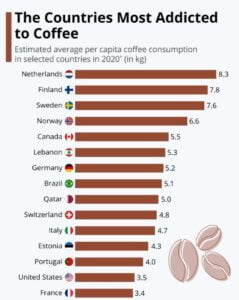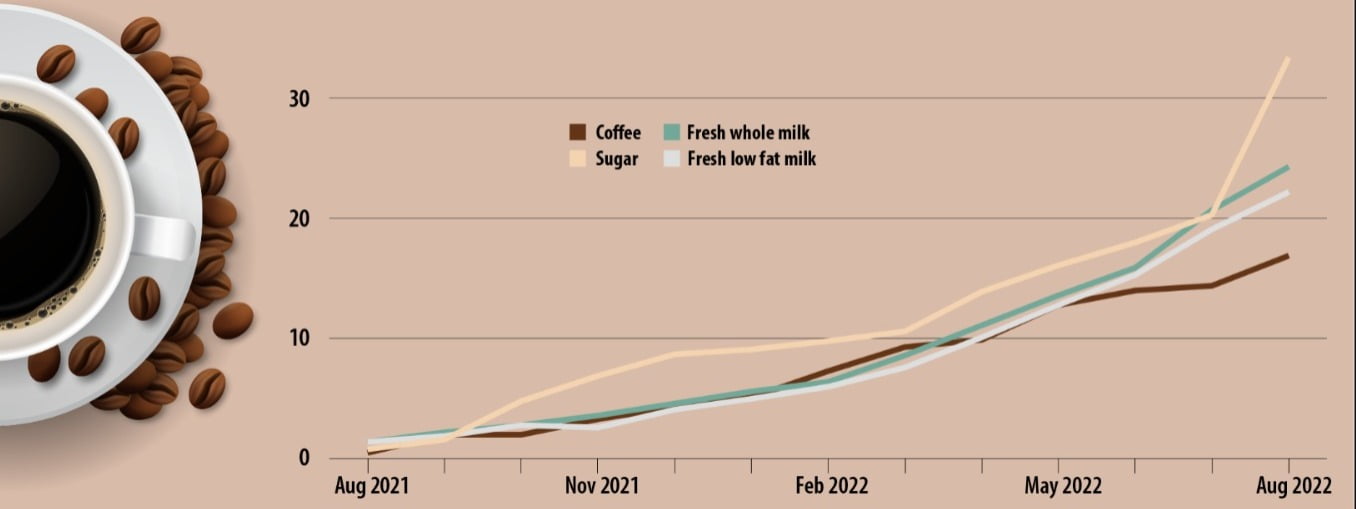One of the biggest and most advanced coffee markets in the world is found in Europe. Major companies including Nestle, JAB Holding Company, and Lavazza dominate the market.
The market for coffee in Europe can be divided into two primary categories: out-of-home, which includes cafes and restaurants, and at-home, which includes bagged coffee purchased from supermarkets and online. With about 60% of the market, the out-of-home advertising segment is the larger of the two.
High levels of market saturation and intense competition for market share define the European coffee market. In spite of this, there is still room for expansion, especially in the speciality coffee market, which has experienced rapid expansion in recent years.
The move toward ethically and sustainably sourced coffee is one of the major trends in the European coffee market. Customers are increasingly looking for goods that are produced in an environmentally and socially responsible way as they become more aware of the effects their coffee consumption has on the environment and society.
The adoption of alternate brewing techniques including pour-over, French press, and cold brew is another trend in the European coffee market. These techniques are thought to produce coffee that is richer in flavor and more nuanced than ordinary drip brewing. In the upcoming years, it is anticipated that the European coffee market will continue to expand as a result of the rising demand for speciality and sustainable coffee as well as different brewing techniques.
Opportunities:
A developing market exists for high-quality, speciality coffee beans as consumers become more knowledgeable about the beverage’s history and origins. This offers a chance for coffee growers in Europe to profit from this pattern by providing uncommon and unusual coffee varietals.
Growth in the market for coffee consumed at home: As a result of the pandemic, more people are choosing to work from home. This gives European coffee firms a chance to concentrate on creating and promoting goods that are acceptable for home use.
Sustainability: There is a rising demand for coffee that is produced in a sustainable way as customers become more ecologically aware. European coffee companies can benefit from this development.

Risks:
Price volatility in the coffee market is a result of elements including the climate and supply and demand dynamics on a worldwide scale. For European coffee enterprises that depend significantly on coffee as a source of revenue, this could be a problem.
Competition from other locations: South America, Africa, and Asia are a few of the other coffee-producing regions that compete with Europe. For European coffee firms, it may be challenging to distinguish their products from one another and to compete on price.
Climate change: By modifying weather patterns and raising the prevalence of pests and illnesses, the changing climate can have an impact on coffee output. For European coffee companies that depend on traditional coffee-growing areas that could be impacted by these developments, this could be a danger.



